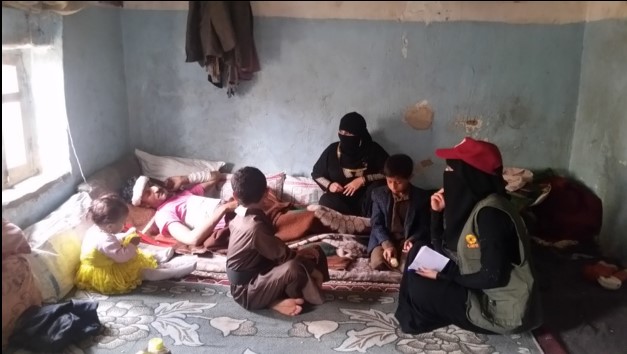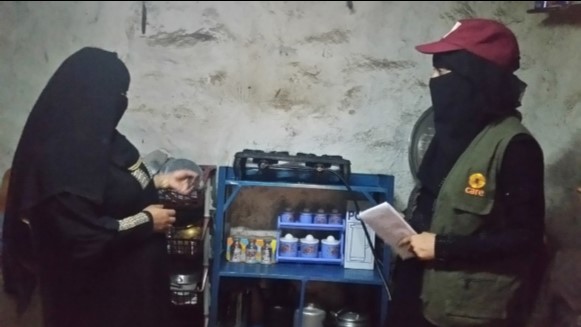The war in Yemen has taken a heavy toll since 2015. Millions of people have been forced to make difficult decisions either to leave their homes and face the risks of displacement, or to stay and face uncertainty.
It was under these conditions that Aisha fled her home in Hodeidah, to Jable Eyal Yazid district of Amran governorate, taking nothing but her children. No one could imagine what has happened to Aisha’s family.
Aisha suffers from asthma. She has four children – three boys and one girl, along with her husband who is bedridden from a heart attack after leaving their house in Hodeidah.
“My husband worked in a factory in Hodeidah,” says Aisha. “But when the war erupted, the factory closed and the city became unsafe. We had to flee to Amran looking for safety and hoping to find a source of income to buy food and pay for shelter.”
Muhammad, her husband, added: “We left everything there (in Hodeidah) and we had to borrow money for transportation. We first settled in a small room at Bir Ayed – we did not even have a bed. I started looking for work here and there; I asked everyone I knew but could not find work. I went home crying and thinking of how I was going to pay for my wife’s asthma medicine. When I got home, I found one of my children had broken his leg while he was on his way back home. His brothers were starving because there was not even a little wheat in the house to satisfy our hunger. At that moment, when I was so tired and desperate, I thought about poisoning everyone – my wife and my children – so that I might rest. But thanks to my faith in God and my wife’s advice, I didn’t do it.”
A few days later, Muhammad had a heart attack and was taken to hospital. With the help of some philanthropists, the treatment costs were paid and he returned home, still carrying the burdens of sickness, hunger and poverty.
Fortunately for her family, soon afterwards Aisha’s name was included in a list of internally displaced people (IDPs) who were eligible for assistance from CARE, with funding from the Yemen Humanitarian Fund (YHF). When they visited, CARE’s team noticed that the family was living in a single room without even a mattress.
Aisha says: “The rain gets into our room and my children cannot sleep because of the cold, then they fall sick. We talked to the owner of the house and asked him to give the whole house, but he refused and demanded that we pay 10,000 Yemeni Riyals in rent, which we couldn’t afford.

